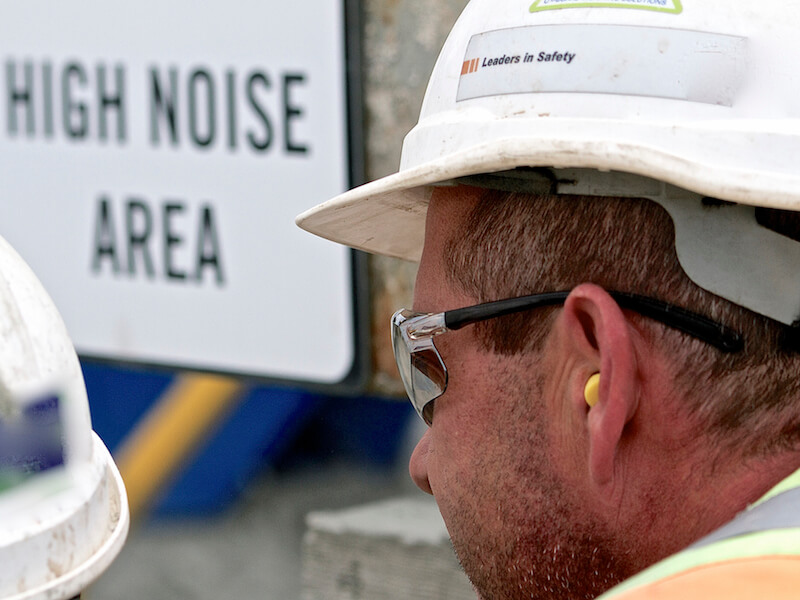
A loud workplace isn’t all that great for your ears (or your focus, for that matter). Even modest noise, when experienced for many hours a day, can begin to undermine the health of your hearing. That’s why it’s really smart to begin asking questions like, “what level of hearing protection should I use”?
Most of us probably didn’t even know there were numerous levels of hearing protection. But it makes sense when you stop to consider it. A truck driver won’t need the same amount of protection that a jet engine mechanic will.
Levels of Hearing Damage
The fact that 85dB of sound can begin to harm your ears is a general rule of thumb. Putting sound into context with regards to its decibel level and how dangerous it is, isn’t something the majority of us are used to doing.
When you’re sitting in your car in city traffic, that’s about 85 decibels. No biggie, right? Wrong, it’s a big deal. At least, it’s a big deal after eight hours. Because it isn’t just the volume of the noise that you need to be aware of, it’s how long you’re exposed.
Common Danger Zones
It’s time to consider ear protection if you are exposed to noise at 85 dB or more for 8 hour days. But that’s not the only threshold you should be aware of. If you’re exposed to:
- 90 dB (e.g., lawnmower): Damage will start to happen to your ears if you’re exposed to this level of noise for 4 hours a day.
- 100 dB (e.g., power tools): Anything above one hour is considered harmful to your hearing.
- 110 dB (e.g., leaf blower): Damage to your hearing happens after 15 minutes of exposure to this noise level.
- 120 dB (e.g., rock concert): If your exposed to this level of noise for any length of time, your hearing can be harmed.
- 140 dB (e.g., jet engine): Any exposure can cause damage and may even cause immediate pain.
When you are going to be exposed to these levels of noise, wear hearing protection that will bring the volume in your ears down below 85 dB.
Find a Comfortable Fit
NRR, which is an acronym for Noise Reduction Rate, is a scale used to measure the effectiveness of hearing protection. The outside world will become progressively quieter the higher the NRR.
The majority of workplaces will have recommendations as to what level of protection will keep your hearing safe because it’s important to have the right protection.
Comfort is also an essential component to take into consideration. It’s very essential that your hearing protection is comfortable to use if you want to keep your ears safe. Why? Because if your hearing protection isn’t comfortable, you’re not going to wear it.
Hearing Protection Choices
There Are Basically Three Options:
- In-ear earplugs
- Earplugs that sit just outside of the ear canal.
- Earmuffs.
There are benefits and drawbacks to each type of protection, but personal preference is often the deciding factor. For some individuals, earplugs are uncomfortable, so they’d be better served with earmuffs. Other people may appreciate the put-them-in-and-forget-them approach of earplugs (obviously, you won’t want to forget them for too long… you should take them out at the end of your workday. And clean them).
Find a Consistent Level of Hearing Protection
Any laps in your hearing protection can result in damage, so comfort is a major factor. If you remove your earmuffs for ten minutes because they’re heavy and scratchy, your hearing can suffer over the long run. So the most crucial decision you can make is to select hearing protection that you’re comfortable leaving in place during your workday.
Investing in the level of hearing protection you require can help keep your ears healthy and happy.
Call Today to Set Up an Appointment
References
https://www.cdc.gov/nceh/hearing_loss/what_noises_cause_hearing_loss.html
